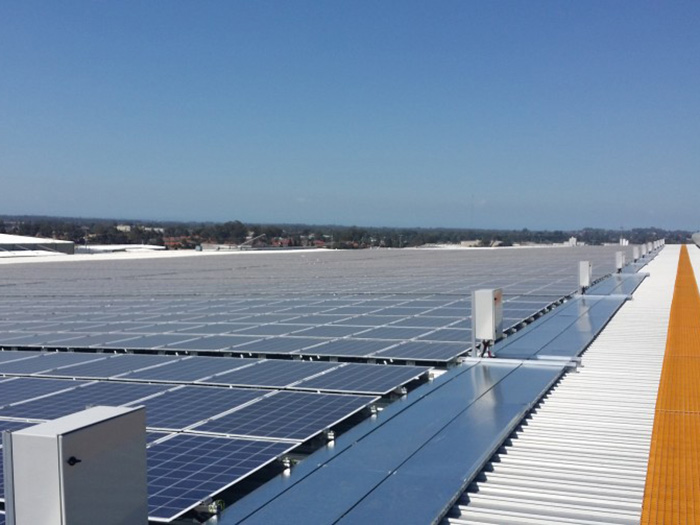Discount supermarket chain Aldi is set to install 4.6 Megawatt Peak (MWp) of rooftop solar across 30 stores and a distribution centre in New South Wales and Queensland.
Combined, the 31 installations are expected to generate more than 6.3 gigawatt hour (GWh) of clean energy annually.
Undertaken by Photon Energy Group, which will also provide the operation and maintenance systems to ensure the PV roofs are reliable and performing, the project is the latest in a series of efforts by Aldi Australia to become more energy efficient.
The German-owned retailer already has several solar projects in the country, including a 1 MW roof installed by Epho at a distribution centre in Brendale, Queensland, and a 1.5 MW array at a facility in Prestons, NSW.
 The 1 MW rooftop solar system at an Aldi distribution centre in Brendale is sufficient to cover the facility’s daytime power requirements on a sunny day. Comprising over 3,400 panels, it’s one of the largest solar systems on a single roof by anyone across Australia, and generates enough energy to power 270 homes in Queensland for a year. Image: Epho.
The 1 MW rooftop solar system at an Aldi distribution centre in Brendale is sufficient to cover the facility’s daytime power requirements on a sunny day. Comprising over 3,400 panels, it’s one of the largest solar systems on a single roof by anyone across Australia, and generates enough energy to power 270 homes in Queensland for a year. Image: Epho.
“Solar power is a perfect fit for supermarkets and these large commercial solar systems can supply a significant chunk of the electricity needs for stores and distribution centres with free and clean renewable energy for years to come,” Dr Oliver Hartley, Epho’s managing director, says.
Aldi, known for its solar investments in the US and across Europe, has an ongoing commitment to reducing its energy consumption and carbon footprint across offices, warehouses and stores. This includes lowering its greenhouse gas emissions per square metre of sales area by 30 per cent on its 2012 baseline.
It will also refurbish all its stores to include energy efficient chillers and LED lighting by 2020.
“With lighting, refrigeration, heating, ventilation and air conditioning (HVAC) systems the major drivers of our energy consumption, we have prioritised upgrading these as part of our ongoing store refurbishment,” the German-owned retailer says.
“We also make smart choices when designing, selecting and using these systems, and regularly analyse our energy consumption data and conduct audits to identify any further energy saving opportunities.”

